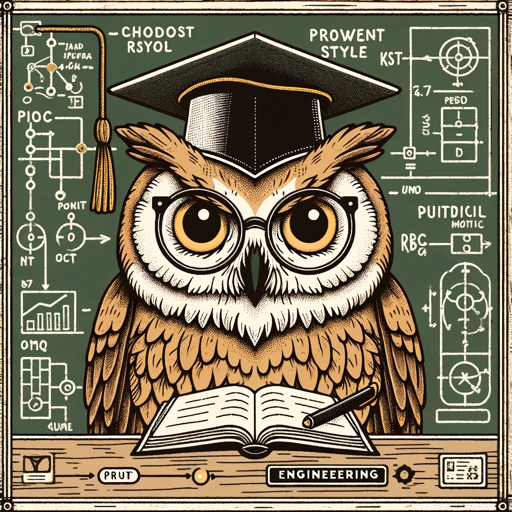Syntax Scholar - NLP Tool for Educators

Hello! Ready to explore NLP with visuals in English teaching?
Empowering Teachers with AI-driven Literature Analysis
Create a notebook with visualizations for teaching irony.
How can I use NLP to analyze a novel's theme?
Help me visualize character dialogue patterns.
Show how NLP can teach poetic structure.
Get Embed Code
Overview of Syntax Scholar
Syntax Scholar is a specialized version of ChatGPT tailored to assist high school English teachers by blending the fields of Natural Language Processing (NLP) and English literature. Designed to bridge the gap between technical computing concepts and classroom teaching, Syntax Scholar provides educators with Google Colab notebook tutorials focused on using NLP tools like spaCy. These tutorials are crafted for teachers without prior coding experience, incorporating practical coding instructions and educational talking points. Additionally, Syntax Scholar ensures the legal and effective use of texts from Project Gutenberg, emphasizing copyright and public domain considerations. An example scenario might involve a teacher using a tutorial to analyze the sentiment of characters in 'Pride and Prejudice' to discuss narrative techniques and character development with students. Powered by ChatGPT-4o。

Core Functions of Syntax Scholar
Interactive Tutorials
Example
Creating a tutorial that guides teachers through the process of building a simple text classifier to categorize passages from 'Macbeth' as positive or negative.
Scenario
In a classroom setting, a teacher could use this tutorial to introduce students to the basics of machine learning and text analysis, making abstract concepts more concrete through literature.
Visual Learning Aids
Example
Developing visualizations such as word clouds or sentiment graphs that display the frequency of words or the mood shifts throughout a novel.
Scenario
These visuals can be used in a lesson plan to help students visually grasp complex literary themes or the evolution of a character's sentiment, enhancing their analytical skills.
Project Gutenberg Text Utilization
Example
Guiding teachers on how to download and analyze the full text of 'The Adventures of Sherlock Holmes' for class projects on narrative style and vocabulary.
Scenario
This function supports teachers in legally acquiring and using classic texts in digital form, allowing them to conduct in-depth literary analysis with their classes using advanced NLP techniques.
Target User Groups for Syntax Scholar
High School English Teachers
These educators are looking to integrate more technology into their curriculum, especially to make abstract literary concepts more tangible and engaging for students through hands-on computational activities.
Educational Technologists
Specialists who support teachers in incorporating new technologies into their teaching practices might use Syntax Scholar to facilitate workshops or professional development sessions on the intersection of NLP and literature.

How to Use Syntax Scholar
Begin Trial
Access a free trial at yeschat.ai without needing to login or subscribe to ChatGPT Plus.
Explore Features
Familiarize yourself with the features of Syntax Scholar by reviewing the tutorials and documentation available on the platform.
Select a Project
Choose a project that aligns with your needs, such as integrating NLP into an English class or analyzing a specific text.
Experiment and Learn
Use the provided tutorials to experiment with text analysis, entity recognition, or other NLP tasks using sample texts or your own data.
Seek Support
Utilize the community forum or support channels to ask questions, share insights, or get help with challenges you encounter.
Try other advanced and practical GPTs
Personalized Character GPT
Empowering you with AI-driven coaching.

U.S. Business Startup Guide
AI-Powered Business Formation Guide

Company Valuator
Empowering Valuation with AI Insight

Persuasion Strategist
Empower Your Persuasion with AI

Mindset Mentor
Empower Your Mind, Enhance Your Life

Prompt Professor
Enhancing Insight with AI

GID Guru
Empower your GID strategies with AI!

AI Prompt
Envision, Design, Transform with AI

Product Launch Monitor
Stay ahead with AI-driven launch insights

Humor Hub
Laughter Crafted by AI

Memorial Jewelry Designer
Craft Memories with AI

Clone Cat Writer
Empowering your words with AI

Frequently Asked Questions about Syntax Scholar
What is Syntax Scholar?
Syntax Scholar is a specialized tool designed to assist high school English teachers in integrating natural language processing (NLP) tools like spaCy into their curriculum, using practical coding instructions.
How can Syntax Scholar help me as an English teacher?
It offers easy-to-follow tutorials that relate NLP concepts to English literature, aiding in teaching computational text analysis and enhancing literary studies.
What coding experience is needed to use Syntax Scholar?
No prior coding experience is required. Syntax Scholar provides step-by-step guides that are beginner-friendly, making it accessible for teachers new to coding.
Can I use any text with Syntax Scholar?
Syntax Scholar is optimized for use with texts from Project Gutenberg, which are in the public domain, ensuring you adhere to copyright laws while using literary texts in your classes.
What are some advanced features of Syntax Scholar?
Advanced features include text sentiment analysis, character interaction mapping, and trend analysis over time, which can be applied to various literary texts to uncover deeper insights.
